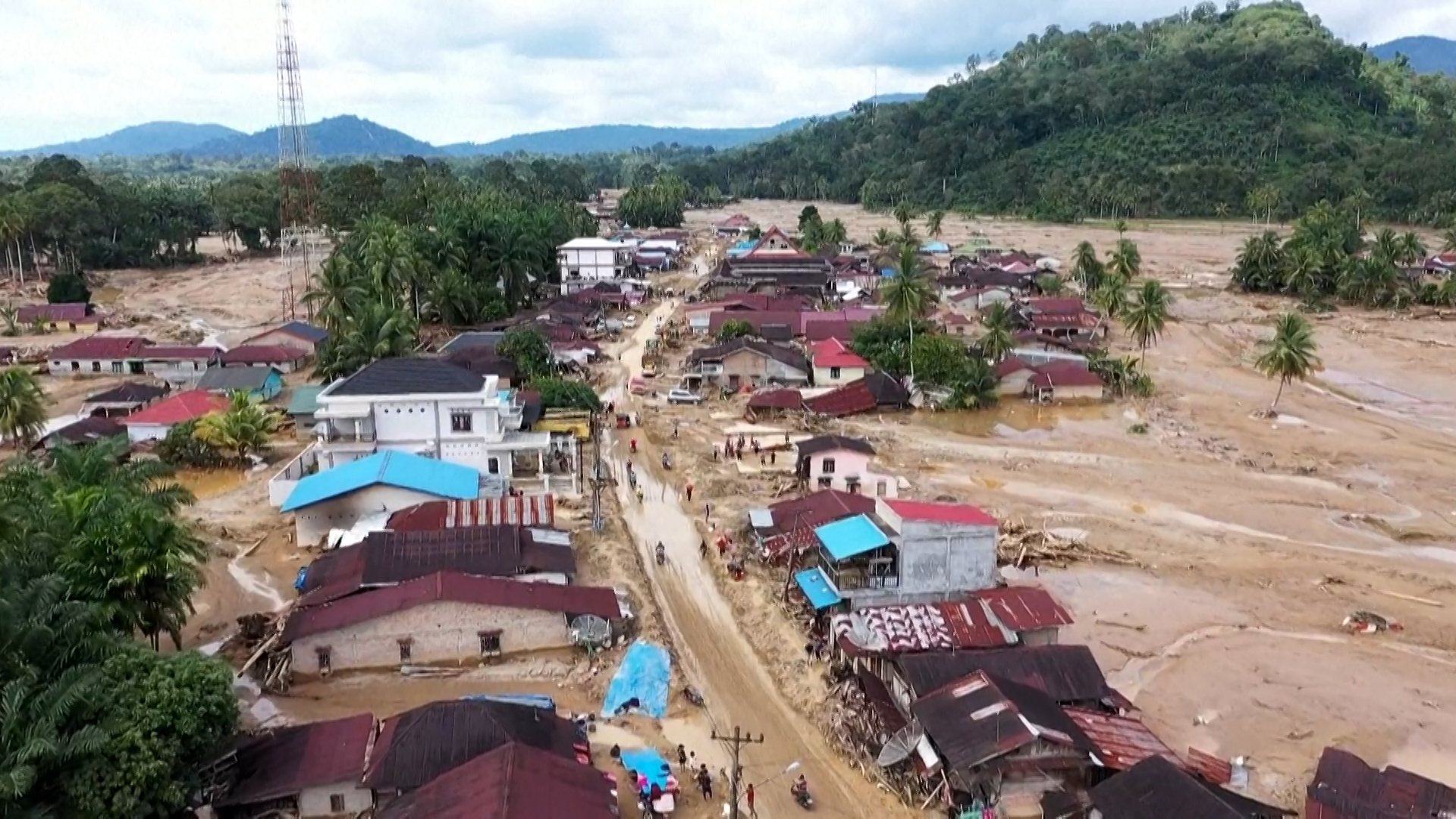With the once-familiar pillars of the old world order crumbling and the US stepping away from action on climate crisis, it falls to others to assume global environmental leadership. Those leaders who understand the urgency should seize the opportunity afforded by Brazil hosting Cop30 this month to build a coalition of committed countries determined to turn back the climate deniers.
Many now see China – the most successful manufacturer of solar, wind, battery and electric vehicle technologies – as the global low-carbon powerhouse. But its national emission goals, recently submitted to the UN, are underwhelming and it is unclear whether China is willing to take up the mantle of climate leadership.
It is the EU, Norway and the UK who have led the west in sustaining green industrial policies through thick and thin, and who are, along with Japan, the main providers of climate finance to the global south. Yet today the EU looks uncertain of itself, under pressure from major sectors lobbying to weaken climate targets and from far-right parties seeking to move the continent away from the once solid cross-party consensus on net zero goals.
The severity of the storms that have hit Jamaica this week will add to the rising frustration felt by the climate-vulnerable states led by Barbados’s prime minister, Mia Mottley. So Keir Starmer’s decision to attend Cop30 and to adopt, with Ed Miliband, a fresh leadership role is highly significant. For it is time to lead in a new way, not just by increasing public and private investment to prevent ever-rising floods, fires and droughts, but by focusing mitigation and adaptation policies on saving and improving lives now. This ranges from increasing the capacity to grow food on the thousands of acres of parched land to preventing the 500,000 annual deaths that excessively hot weather now causes by addressing the poverty-related health problems – intensified for example by floods and waterborne diseases – that contribute to eight million early deaths every year.
A decade ago, the Paris climate agreement committed the international community to holding the rise in the Earth’s temperature to well below 2C above preindustrial levels, and trying to limit it to 1.5C. Since then, successive UN climate conferences have accepted the science and reinforced 1.5C as the agreed target. Progress has been made, especially as renewables have fallen in price. Yet we are very far from being on track. The world is already around 1.5C warmer, and global emissions are still rising.
Over the next few weeks, the last of the high-emitting powers will announce their national climate targets for 2035, including the EU, India and Saudi Arabia. But it is already clear that a huge “emissions gap” between rich and poor countries will remain. Though Paris included a ratchet mechanism – countries agreed to strengthen their commitments every five years – the next stocktaking and reset is not until 2028, and so we are headed for 2.3C-2.7C of warming by the end of this century.
As the World Meteorological Organisation has just reported, carbon dioxide levels in the atmosphere are now rising at their fastest ever rate, with catastrophic economic and ecological impacts. Nasa’s satellites show that extreme weather events are now occurring at double the intensity of the average recorded in the 2003-2020 period. Weather-related damage to businesses and infrastructure cost nearly half a trillion dollars ($451bn) in 2022 and 2023 combined. Allianz’s Günther Thallinger recently warned that “entire regions are becoming uninsurable” as key asset classes degrade “in real time”. Record droughts in Africa caused acute hunger for 23 million people in 2023 – to which should be added the malaria, diarrhoea and other deaths linked to the global rise in temperature.
But countries are not yet on course even to contain the damage. The Paris agreement contains no provisions for national climate plans (they are called “nationally determined contributions” for a reason) to be discussed and revised. Four years ago, at Cop26 in Glasgow, when the last set of plans was pronounced inadequate, countries agreed to come back the following year with stronger ones. But only one country did. Four years on, just 67 out of 197 have sent in plans, which add up to only a 10% reduction in emissions when we need a 60% cut to stay within 1.5C.
This is why Brazilian president Luiz Inácio Lula da Silva’s two-day leaders’ summit on 6 and 7 November, in advance of Cop30 in Belém, will be so critical. Other leaders should now follow Starmer’s example and lay the ground for a far more ambitious Belém declaration than the one now on the table.
First, the vast majority of countries should commit not only to defending the Paris accord but to accelerating the implementation of their existing climate plans. As innovations transform our net zero options and with green technology costs falling, decarbonisation, which Miliband is proposing for the UK, is possible at speed elsewhere in transport, homes, industry and agriculture. Allied to that, Brazil has called for an expansion of carbon pricing and carbon markets.
Second, countries should declare their determination to achieve by 2035 the goal of $1.3tn in public and private finance for the global south, from where most of future global emissions will come. The leaders should endorse the joint Brazil-Azerbaijan “Baku to Belém roadmap” mandated at Cop29 to show how it can be done: it includes innovative new ideas such as multilateral development bank and climate fund guarantees, debt swaps, and mobilising private capital through “reinvestment”, all of which will allow countries to strengthen their emissions pledges.
Third, countries can pledge support for Brazil’s Tropical Forest Forever Facility, which will halt tropical deforestation while providing employment for Indigenous populations, itself an exemplar for innovative ways the public sector should be mobilising private investment to achieve the sustainable development goals.
after newsletter promotion
Fourth, by China and India implementing the Global Methane Pledge, Cop30 can strengthen the global regime on a greenhouse gas that is still emitted in huge quantities from oil and gas plants, landfill and agriculture.
But a fifth focus should be on reducing the human costs of climate inaction – and not just the loss of livelihoods and the risks to health but the hardship of an estimated 40 million children who cannot enjoy an education because droughts, floods or storms have closed their schools.
Leaders are being tested in a moment of geopolitical uncertainty and climate peril, but as recent polling shows, our public and our MPs are aware that not enough is being done to tackle the environmental crisis.
The Belém declaration proposed above would enable leaders to show that the current low-ambition national climate plans are not the last word on emissions. It would demonstrate that they are committed not only to getting the world back on track, but to affirming, as we commemorate the 80th anniversary of the founding of the United Nations, that multilateral rules-based cooperation is still possible. It would prove that prosperity, to be sustained, has to be shared. This month, when both Cop30 and the G20 convene, is the time to remind leaders that future generations will judge them. They will ask whether or not, at this critical moment, when the world faced a choice between progress and retreat, they rose to the challenge of our times and gave people hope.


